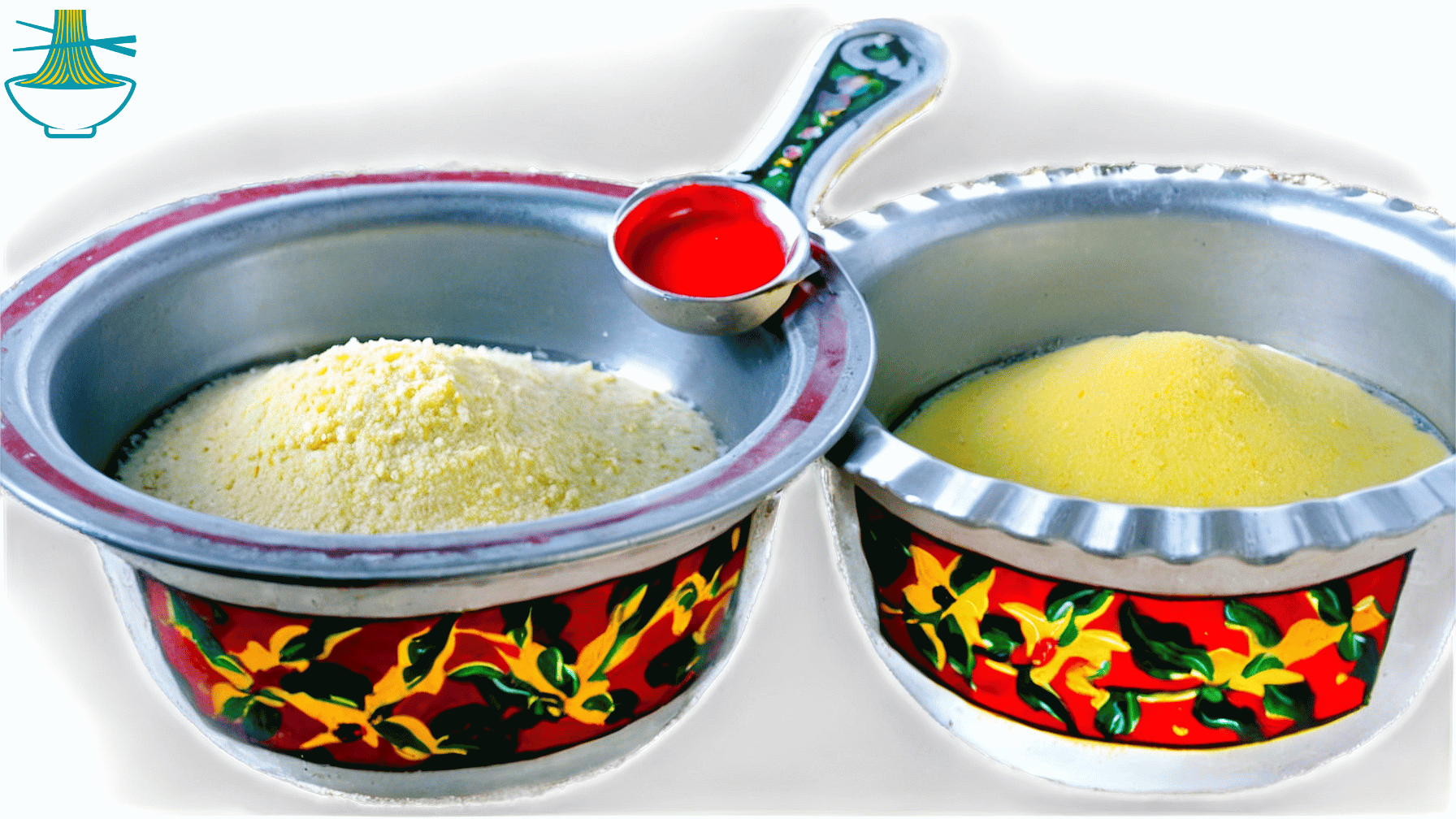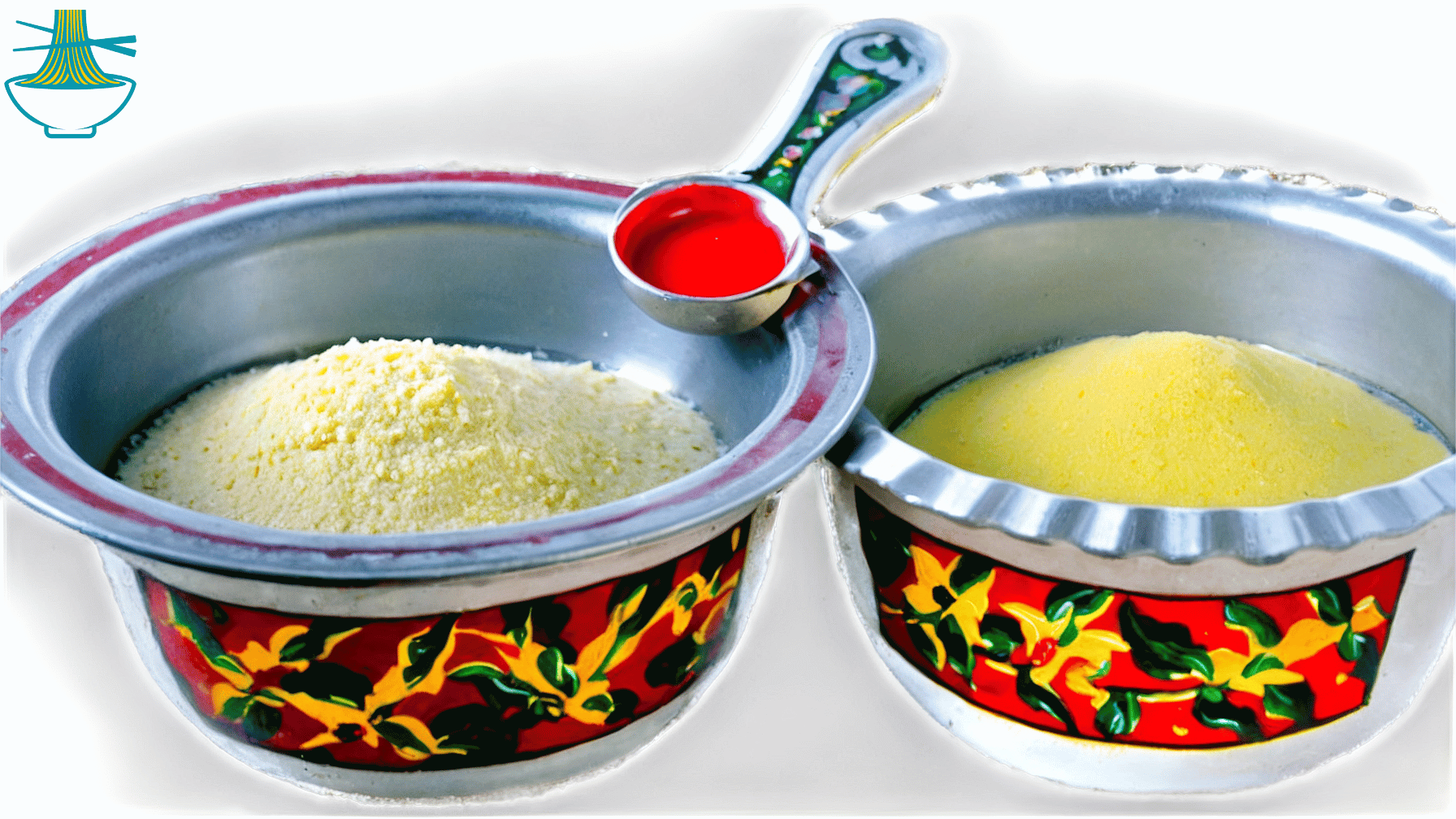Sadza, also known as ugali, nsima, or pap in other African regions, is a nutritious and energy-rich staple from Zimbabwe. In Dutch, it is referred to as maïspap, and in German as Maisbrei. Made from white cornmeal or maize meal, Sadza is packed with complex carbohydrates, providing sustained energy and improving digestive health due to its high fiber content. Low in fat and sodium, it is often served with protein-rich stews, leafy greens, or beans, creating a well-balanced, satisfying meal. This dish holds cultural importance and remains essential in Zimbabwean households, just as similar variations do in other parts of Africa.

Ingredients for Sadza:
- 2 cups of white cornmeal
- 4 cups of water
- Salt to taste
Preparation method for Sadza:
1. In a large pot, pour the water and add salt, then stir until the salt is completely dissolved.
2. Gradually add the cornmeal to the salted water, and continue stirring with a wooden spoon or spatula until a thick dough forms.
3. Allow the mixture to simmer over low heat, stirring continuously for 10-15 minutes until you have a thick, fully cooked dough.
4. Shape the dough into a large ball, then divide it into small pieces and shape them into flat discs.
5. Serve the hot Sadza with main dishes such as meats or fried vegetables.
In conclusion, Sadza represents a rich culinary heritage in African cuisine, particularly in Zimbabwe, where it is cherished as a delicious and comforting dish enjoyed by many.

Nutrition Value
1. White Cornmeal (2 cups)
- calories: 880
- carbohydrates: 192 g
- protein: 16 g
- fat: 4 g
- sodium: 6 mg
- cholesterol: 0 mg
- vitamins: small amounts of B6 and folate
- minerals: iron, magnesium, phosphorus
- nutritional benefit: provides complex carbohydrates for sustained energy and fiber for digestion. contains iron, supporting oxygen transport in the blood.
2. Water (4 cups)
- calories: 0
- carbohydrates: 0 g
- protein: 0 g
- fat: 0 g
- sodium: 0 mg
- cholesterol: 0 mg
- vitamins: none
- minerals: none
- nutritional benefit: essential for hydration, aids digestion, regulates body temperature, and supports nutrient transport.
3. Salt (to taste)
- calories: 0
- carbohydrates: 0 g
- protein: 0 g
- fat: 0 g
- sodium: varies; 1 teaspoon contains 2325 mg
- cholesterol: 0 mg
- vitamins: none
- minerals: sodium
- nutritional benefit: maintains fluid balance and supports nerve function. should be consumed in moderation to prevent high blood pressure.


Comments